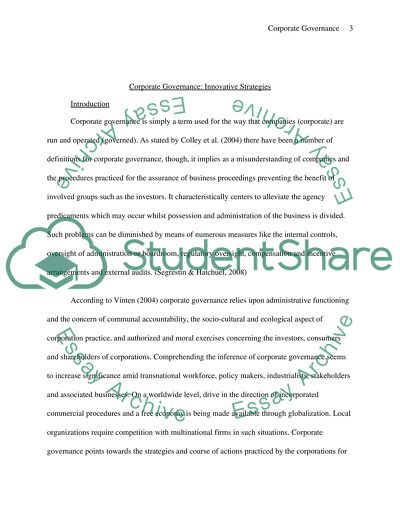Cite this document
(“CORPORATE GOVERNANCE: INNOVATIVE STRATEGIES Essay”, n.d.)
Retrieved from https://studentshare.org/miscellaneous/1508657-corporate-governance-innovative-strategies
Retrieved from https://studentshare.org/miscellaneous/1508657-corporate-governance-innovative-strategies
(CORPORATE GOVERNANCE: INNOVATIVE STRATEGIES Essay)
https://studentshare.org/miscellaneous/1508657-corporate-governance-innovative-strategies.
https://studentshare.org/miscellaneous/1508657-corporate-governance-innovative-strategies.
“CORPORATE GOVERNANCE: INNOVATIVE STRATEGIES Essay”, n.d. https://studentshare.org/miscellaneous/1508657-corporate-governance-innovative-strategies.


